Passion, dedication, inspiration, innovation: these are some of the qualities exemplified by the midwives who have so far been awarded an RCM fellowship.
This membership category recognises individual midwives who provide exceptional leadership and deliver excellence in practice, education or research.
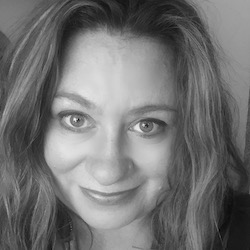
In 2018, Dr Laura Abbott was awarded an RCM Fellowship, in the same year as gaining her doctorate in health research, alongside her day job.
Her academic career – which began in 2009 following seven years as a nurse and nine years as a midwife – often focuses on complex social issues and perinatal mental health.
Laura has a particular interest in the experiences of pregnant women in prison. She works with charity Birth Companions and helped write the Birth charter for women in prisons in England and Wales.
Describing herself as resilient, Laura thrives on bouncing back quickly and overcoming challenges. Her research has demonstrated the huge scope to improve policy, care and outcomes for mother and child, particularly marginalised women. Outside work, Laura spends time with her husband and three sons, enjoying the theatre and cinema.
Aine Alam is a practising midwife, teacher and researcher, specialising in midwifery-led care, multidisciplinary teamwork and teaching practices that have a work based learning focus. Áine holds qualifications in nursing, midwifery, advanced midwifery practice, clinical teaching and learning, assessor awards and a Cert Ed, Masters in work based learning (WBL). She is currently completing PhD studies about how midwifery teachers move from lecture-led learning to practice based approaches to the teaching and learning of midwifery.
A midwife since 1982 and currently practising in Maidstone and Tunbridge Wells NHS Trust, Áine returned from a three year sabbatical in November 2016 as voluntary Visiting Faculty to The School of Nursing and Midwifery (SONAM) at Aga Khan University Karachi. She was privileged to work with an enthusiastic midwifery teaching team who brought the Bachelor of Midwifery degree for the first time to an Asian country.
In 2014 Áine was awarded an International Fellowship Award from the charity Wellbeing of Women (WOW) in conjunction with the RCM. In 2015 she authored a book titled Teach Don’t Tell: Effective strategies for training midwives, a narrative script that challenges midwifery teachers to teach for ‘real’.
Áine also volunteers as a Learning representative for the RCM, conducting learning events across London and Kent for midwifery colleagues. The RCM (funded by DfiD) have placed Áine four times in Uganda to assist universities with their curriculum development for midwives, influencing how midwives will be taught with the ultimate aim of reducing the vast number of mothers and babies who die in childbirth in developing countries.
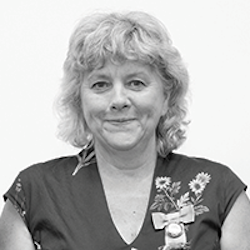
Annette qualified as a midwife in 1983 and, after working clinically, including as a midwife-sonographer, she joined the research team at Guy’s and St Thomas’ NHS Foundation Trust in 1997.
She has worked on many single, multicentre, national and international clinical trials. Many of the results have influenced midwifery and obstetric practice improving outcomes for women and babies. Areas of interest include: obesity, GDM, preterm birth, pre-eclampsia, and the development of products to train staff and aid birth. Annette is NIHR specialty lead, NIHR Advocate (Midwifery) NIHR Midwife Champion, and R and D lead for Women’s Services at GSTFT.
She currently manages a team of midwives and others recruiting to over 50 clinical trials. In 2014 Annette completed a PhD looking at risk factors, and their cumulative impact, on blood loss and PPH. Annette is a Trustee of Maternity Worldwide, working to improve the reproductive health and status of women in low resource settings.
Tracey has 25 years midwifery experience, working in all areas of midwifery and birth settings. She has held both management and Consultant Midwife roles. She is currently Head of Midwifery at Warrington and Halton Hospitals NHS Foundation Trust. She has successfully developed both freestanding and alongside midwifery led units and midwifery models of care.
Tracey contributes to guidance and professional policy locally and nationally. She is currently a member of the NICE High Risk Intrapartum Guideline Group. She was a member of the NICE Intrapartum guideline group and the new NICE Intrapartum Standards for Healthy Women and Babies. She is a CQC Specialist Advisor and part of the BJM Editorial Board. She has been working internationally to assist midwives in Bulgaria to develop midwifery-led services in an oppressive medicalised culture.
Tracey gained her PhD in 2011 at University of Central Lancashire, looking at Women and Midwives Perceptions of the Midwife’s Role.
You can follow Tracey on Twitter @drtraceyc
Dianne has demonstrated her pioneering of water birth and developed sustainability of what was a novel practice at the time, now a fundamental aspect of midwifery practice and a real choice for women. Her work through clinical practice, education and research has embedded water birth in contemporary practice. Her work is recognised nationally and internationally.

In 1974 she commenced her nurse training and quickly realised that her heart lay in midwifery. She has been a midwife for 41 years and has worked in hospital, community, education and research and global midwifery. She was one of the first Consultant Midwives in the UK, specialising in Public Health in Liverpool UK working around all aspects of deprivation and inequalities that affect pregnant women and their families. She was also appointed as National Midwifery Assessor for the Confidential Enquiry into Maternal Deaths.
Her expertise has taken her to the Middle East to establish Midwifery Education and initiate a shared care model to empower the role of the midwife in the UAE which was endorsed by the UAE Government. Grace is currently working at the Aga Khan University as the Foundation Professor for Midwifery Education and Practice, based in Uganda, but working strategically across East Africa. She has always maintained her clinical practice and practices at Kawempe Mulago hospital in Kampala. She is an editorial board member and reviewer for MIDIRS, the Practising Midwife and the International Journal of Childbirth and is a reviewer for Midwifery and Evidence Based Midwifery.
Sarah has united her clinical role and her research activity to ensure that women with complex needs are afforded the same support as low risk women. In addition to her UK work Sarah has been active in the RCM Global agenda, she has made positive contributions to developing professionalism of midwifery in Bangladesh.

Jenny has been in involved in midwifery for over thirty years. She has been educating all this time, in practice, publication or in higher education. She is a Senior Fellow of the Higher Education Authority. Her passion is to view families' holistically, including recognising spirituality, and has published widely on these topics. Her Doctor of Education holistic project explored the meaning of being a midwife and the art of midwifery practice, using creative methods, including creating a reflective textile quilt.
She has recently completed research relating to psycho-social/spiritual experience of pregnancy and mental wellbeing, promoting dignity and respect in midwifery education, and the experiences of disabled women. She loves student midwives and getting them to think and telling stories about the 'old days'. She has been involved in developing other educators through running a unit on a Postgraduate certificate for education. She has currently stepped away from formal academia as an independent educator and researcher, undertaking project work for universities and creating educational resources.
She has a very patient husband and five daughters, and a granddaughter, who are her life.
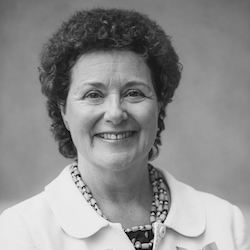
Billie Hunter, professor of midwifery at Cardiff University, is internationally esteemed as a researcher and author, particularly for her focus on the emotional work of midwives and their professional resilience. She lectures across the globe and holds a number of visiting chairs, including at the University of Technology in Sydney, Australia.
A midwife since 1979, and the first RCM professor of midwifery, she has spent the past two decades making an outstanding contribution to the evidence base for midwifery, through research, writing papers, books and presentations, and says she is committed to ‘inspiring and supporting others to do the same’.
She is the former chair of The Iolanthe Midwifery Trust, and founder and chair of the All Wales Midwifery and Reproductive Health Research Forum. More recently, Billie became director of the WHO Collaborating Centre for Midwifery Development in Europe, based at Cardiff University. She also helped to set up the RCM oral history archive.
She says: ‘We know that midwives need to feel valued and cared for themselves in order to provide compassionate and safe care, so we really do need to pay attention to how tough it is for midwives on the ground, and find ways to offer better support.
‘I think it’s my interest in ‘caring for the carer’ that really resonates with other midwives. The ideas for this research originated in clinical practice, and I’ve made sure that I’ve taken the findings back to midwifery education and practice.’
She says becoming one of the RCM’s first fellows is ‘a huge honour’, and adds: ‘I hope that I can use the fellowship to carry on supporting midwives in their invaluable work, and hence improve care for women, babies and families.’
Sara is the midwifery lead for 'MBRRACE-UK', which provides essential evidence to challenge practice. In addition to MBRRACE work Sara’s contribution to the increasing evidence base in maternity is extensive, changing and influencing practice as well as supporting midwives and others to continue researching. Her work is recognised nationally and internationally.

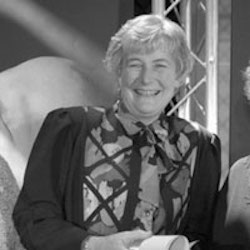 Julia Magill-Cuerden has worked as a midwife and lecturer in Scotland, Malawi, New Zealand and England for over 50 years. She has been committed to the development of midwifery education and was responsible for introducing curriculum innovations, including the first midwifery degree. She was clinically involved in the quality of care through the role of Supervisor of Midwives. Through her writing and reviewing, Julia has promoted the quality of midwifery and nursing publications and encouraged others to do the same. Having obtained a PhD in 2002 she has supported midwives in research and higher degrees. She was awarded a National Teaching Fellowship of the Higher Education Academy and Emeritus Scholar of the University of West London.
Julia Magill-Cuerden has worked as a midwife and lecturer in Scotland, Malawi, New Zealand and England for over 50 years. She has been committed to the development of midwifery education and was responsible for introducing curriculum innovations, including the first midwifery degree. She was clinically involved in the quality of care through the role of Supervisor of Midwives. Through her writing and reviewing, Julia has promoted the quality of midwifery and nursing publications and encouraged others to do the same. Having obtained a PhD in 2002 she has supported midwives in research and higher degrees. She was awarded a National Teaching Fellowship of the Higher Education Academy and Emeritus Scholar of the University of West London.
The honour goes to Julia in recognition of the fact that her professional achievement, scholarship and leadership have made an exceptional contribution to promoting and advancing midwifery.
Amanda has worked with London Ambulance Service NHS Trust in the development of education resources and support for colleagues. Her approach has centred on safety for women and babies when working in a MDT environment across service providers and environments. This project is simple in its approach, but addresses complex issues and has led to improvements in practice and knowledge for emergency staff and has potential to be rolled out more widely.

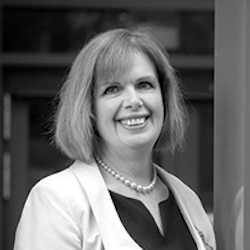
Jayne is the Foundation Professor of Midwifery at the University of Leicester and the University’s Nursing and Midwifery Council’s (NMC) Lead Midwife for Education. Jayne is tasked with pioneering an innovative 4-year undergraduate pre-registration Master in Science Midwifery with Leadership programme for aspiring leaders of the midwifery profession in partnership with University Hospitals of Leicester NHS Trust. Jayne is also a Principal Fellow of the Higher Education Academy and an Aurora Role Model and mentor for the Leadership Foundation for Higher Education.
Jayne trained as a nurse at Guys Hospital, London and undertook midwifery training at Kings College Hospital, London. Her first role in education was at the University of Nottingham where she held a variety of teaching and leadership roles before leaving to take up appointment as the Head of the School of Midwifery at Kingston University and St Georges University of London. Jayne was then promoted to Associate Dean for Practice Education and Workforce Development within the Faculty of Health and Social Care and subsequently became the first Professor of Midwifery at Kingston and St Georges. In 2012, Jayne was recognised for her leadership in midwifery education, being a recipient of a Lord Dearing Award for her outstanding achievement in enhancing the student learning experience.
Currently, Jayne is a member of the International Confederation of Midwives (ICM) Education Standing Committee and the ICM Research Advisory Network. Jayne’s PhD research explored intrapartum informed consent and subsequently her research interests have focussed on pedagogical research in midwifery.
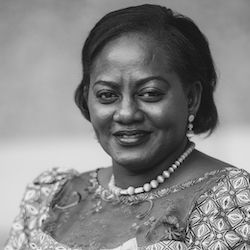
Comfort Momoh has dedicated her professional life to helping survivors of FGM and works tirelessly to eradicate the practice.
An FGM public health specialist at Guy’s and St Thomas’ NHS Foundation Trust in London, and a visiting lecturer at a number of prominent institutions, including King’s College London, her expertise is world renowned. She has been invited to speak at the first US summit on FGM in Washington DC in December, and at the 31st ICM Triennial Congress in Canada next year.
Comfort has advised London councils, government departments and the WHO on FGM issues, and travels extensively in African countries to raise awareness. In 2008, she received an MBE for services to women’s health.
A pioneer in her field, she founded the first African Well Woman’s Clinic at St Thomas’ Hospital back in 1997, dedicated to caring for women affected by FGM.
‘I started many years ago when people didn’t even want to talk about it,’ she says. ‘Now the work we have done, and others too, has brought it to the forefront, and made it a safe environment for survivors to come out and talk about their own experiences, and that’s very powerful.’
Training midwives and other healthcare professionals, mentoring students and colleagues are all part of her work, which she happily admits goes way beyond the nine to five. ‘I don’t mind that – this is my passion,’ she adds.
‘It’s very important that as health professionals, we know our roles and responsibilities in terms of safeguarding girls and women who might be at risk.
‘For me, it’s about impacting communities, reaching out to them, changing attitudes and mindsets, which you can’t do overnight. But I would like to see FGM end in one generation if possible.’
She says she hopes the RCM fellowship will help her advocate for women and girls, and ‘give a voice to the voiceless’.
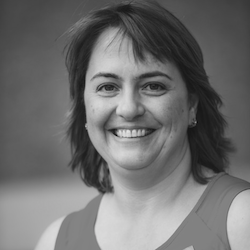
Gergana Nikolova, a senior midwife at Frimley Health NHS Foundation Trust in Surrey, was recognised for her work with vulnerable women and for improving care and access to services for black, asian and minority ethnic (BAME) mothers.
A midwife for over 20 years, she has also published widely and is a columnist for the biggest maternity journal in Bulgaria.
Her latest project is a pioneering online pregnancy information programme for BAME groups translated into Urdu, for which she was awarded the prestigious Mary Seacole Award and Scholarship for 2015-2016.
Gergana has been invited to speak at ministerial meetings about her work, and will present the project at the ICM congress too next year.
‘We started with Urdu, but we’re nowhere near finished developing it,’ she says. ‘We recognise there are many other languages we need to use in order to support as many mums as we can, and make the service available and understandable to them.’
‘Each project leads to something bigger and bigger,’ she adds, with her thoughts now turning to the creation of a guide for BAME mothers on how to navigate maternity services.
Gergana says she applied for the fellowship to show others that ‘you can step up and achieve. If you work and have good ideas, and if you are brave enough, you can do whatever you want to.’
Describing it as ‘an honour, a commitment and a responsibility,’ she adds: ‘It is a platform for me to inspire the next generation of midwives, to promote and better our services, and to be an ambassador for the great service that we have in the UK.
‘My work is my passion and this gives me a chance to work even harder.’
Julia is renowned for her research and broad midwifery expertise. The impact of her research and how it has improved the lives of women and their babies is clear, something which is supported by an excellent record of dissemination of the research findings in order to reach a wide audience, particularly midwives. She has demonstrated innovative approaches to research in women’s health and her work has contributed to midwifery knowledge and influences practice.

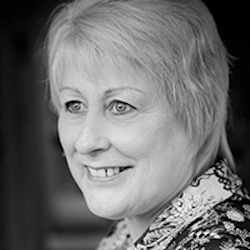
Denise is a midwifery lecturer and internationally renowned authority on midwifery complementary therapies. Previously, at the University of Greenwich, she developed a BSc (Hons) degree in Complementary Therapies and established a specialist antenatal clinic where she treated almost 6,000 women. The clinic was “highly commended” in the 2001 Prince of Wales’ Awards for Healthcare in London.
In 2004 Denise established her own education company, Expectancy, providing a unique range of RCM-accredited courses for midwives and business mentoring for midwives wanting to work in private practice. She has taught almost 3,000 midwives in the UK and overseas and is a frequent international conference speaker.
Denise has a strong commitment to safety and professional accountability in relation to complementary therapies. She has undertaken several research studies and published widely, including Aromatherapy in Midwifery Practice (2016), Complementary Therapies in Pregnancy and Childbirth (2018) and The Business of Maternity Care (2018). She has edited several editions of Bailliere’s Midwives’ Dictionary and revised the RCM’s Position Paper on complementary therapies. Denise is also Associate Editor for the Complementary Therapies in Clinical Practice journal.
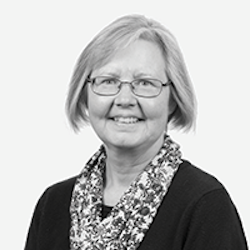
Susan believes that throughout her career she has been fortunate enough to be able to join together two of her early ambitions, namely midwifery and education. She has over 30 years’ experience of working in practice, education, regulation and research. Susan spent eight years employed at the NMC working on a variety of projects including developing standards for education, practice and statutory supervision.
She gained her PhD in 2007 at Bournemouth University and returned to working in education in 2009 taking up the role of Lead Midwife for Education. Susan is a National Teaching Fellow of the Higher Education Academy and Professor of Midwifery Education. She enjoys supervising doctoral students whose research is closely linked to practice, where they work two days a week clinically as part of a four-year full time clinical academic programme. Previously, Susan has chaired the LME UK Executive and the RCM Board.
A fellowship was also awarded to Birmingham Women’s NHS Foundation Trust midwife Sara Webb, which, in particular, recognises her work in childbirth-related perineal trauma.
Sara, who has combined research with clinical work throughout her career, was awarded an NIHR Clinical Doctoral Research Fellowship in 2013 to pursue her women-centred, midwifery-led research in this area. She was also awarded an MPhil in 2010 for her research into the accuracy of abdominal palpation.
As a specialist perineal midwife, her work has included setting up a one-stop shop for obstetric anal sphincter injuries, and running perineal clinics for women after they have given birth.
She has formed a network with other specialist perineal midwives around the UK and in Spain, sharing knowledge and collaborating on research, and is helping to set up a charity for mothers with anal sphincter injuries from childbirth, which is due to launch next year.
She describes her approach to midwifery as ‘putting women first in patient care, by hearing what concerns them have and the information they really want, rather than those we think they want.’
And she is passionate about changing the perception that research ‘is solely in the realm of academics’.
She says: ‘We are autonomous practitioners; everything we do should have evidence to support it. Where there isn’t a lot of evidence to support the work we do, we need to fill that void.
‘If I can do it, as a normal shop-floor midwife, so can you. If you have the research idea, go out and get some funding and do it – find the evidence and use it to improve care.’
She adds: ‘For me, knowledge should be shared and people should be supported to develop – that’s my passion – helping others see their ideas through, and I hope the fellowship will help me do that.’

Marion qualified as a midwife in 1983 and works as a Community Midwifery Manager for Brighton and Sussex University Hospitals. She has fast international experience which has given her valuable inside in all aspects of midwifery in different and diverse communities in a number of countries in the world such as the Caribbean, Australia, Scotland and the Netherlands. Her experience as a Sure Start Midwife taught her a great deal regarding the benefits of multidisciplinary working in the community setting, especially with vulnerable women.
She published several papers on the subject.During the last 5 years she achieved a MSc in Women’s Health and published findings on midwives’ experiences of homebirth transfers. Together with her colleagues she improved the homebirth service for the Trust.
This won the prestigious RCM award for better births in 2016. Next came the launch of the first Midwifery Hub in the South East. The opening ceremony featured Harriet Warner, co-author of the successful ‘call the midwife’ series.
Juliet qualified as a Nurse in 1993 and received a BSc (Hons) in Midwifery from Thames Valley University in 1996. Prior to this she obtained a BA (Hons) in Latin American Politics from Essex University.
Juliet worked as a 1-1 Midwife from 1997 to 2000. She has worked in many different areas over the years including as a Community Midwife, Birth Centre Midwife and Sure Start Midwife and has supported women during numerous homebirths and water births. She is an IBCLC and she set up (in 2012) and now runs the Complex Breastfeeding and Tongue Tie assessment clinic at Imperial College Healthcare NHS Trust.
From 2003 Juliet began campaigning to improve services for women with Female Genital Mutilation (FGM). In 2007 she set up a community-based clinic, the Acton African Well Woman Centre, for non-pregnant women with FGM.
The service offered same-day deinfibulation under local anaesthetic, women could self-refer as there were no geographical boundaries, and they pioneered a unique model of care: - co-locating a Somali-speaking Health Advocate and specialist trauma Counsellor into clinic consultations. The service won a Guardian Public Service Award in Diversity and Equality in 2011.
Dr Alys Einion-Waller, Associate Professor of Midwifery at Swansea University, teaches midwifery, maternity care, research methods, gender and women’s studies, and is an equalities activist and a researcher in the fields of midwifery, narrative, gender, equalities and feminism.
Her passion for midwifery stems from her unwavering belief in the power and capability of women and childbearing persons, and she advocates for the autonomy of pregnant and birthing people tirelessly. Her co-edited book, Bearing the Weight of the World: Exploring Maternal Embodiment was published in 2018.
Alys loves to write, publishing extensively, and she now works to support colleagues, student midwives and others to publish. She runs Centred Birth Hypnobirthing classes and practitioner courses. She loves to read, to cook and to travel. She lives between the mountains and the sea, is married to a librarian, has three dogs, one cat, three sons, a campervan and a house full of books.
 Sarah Noble is Currently the Head of Midwifery at South Warwickshire NHS Foundation Trust. Sarah has a broad experience of maternity services and has worked in several NHS trusts across England and Wales, in the private sector, military both in the UK and aboard.
Sarah Noble is Currently the Head of Midwifery at South Warwickshire NHS Foundation Trust. Sarah has a broad experience of maternity services and has worked in several NHS trusts across England and Wales, in the private sector, military both in the UK and aboard.
In 2015 Sarah was asked to be a panel member on the national maternity review and contributed to the recommendations in the Better Births Report. Locally she has Lead the implementation of maternity transformation. The organisation has been recognised for their achievements especially the service wide implementation of continuity of care in the Community Hubs. The trust have been shortlisted in the RCM awards for Midwifery Service of the year. Sarah contributes to several national groups, including Continuity of Carer Subgroup, National Stakeholder Council and is the National Clinical Lead for Workstream 3, Choice and Personalisation.
Sarah believes that if we are going to continue to improve safety and the experience of families we must focus on relational based care and invest in working closely with local communities through the Hubs. This collaborative approach will enable midwives to facilitate positive social connectivity and contribute to building social capital that endures far longer than the maternity episode
 Sarah Chitongo is a Nurse and Midwife with 18 years of experience in all areas of Midwifery. She is also an experienced Senior Manager who left the National Health Service as Midwifery Manager. Sarah is also a Specialist Advisor to the American Pregnancy Association. She is an ambitious manager who has built a reputation developing and motivating staff. The management style focuses on three main things; innovation, quality and staff. Currently she is a Midwifery Educator and providing consultancy for academics and also Manager of the Clinical Skills Department to ensure the needs of the school align with the strategic goals of the university as well as generating and presenting annual management review reports.
Sarah Chitongo is a Nurse and Midwife with 18 years of experience in all areas of Midwifery. She is also an experienced Senior Manager who left the National Health Service as Midwifery Manager. Sarah is also a Specialist Advisor to the American Pregnancy Association. She is an ambitious manager who has built a reputation developing and motivating staff. The management style focuses on three main things; innovation, quality and staff. Currently she is a Midwifery Educator and providing consultancy for academics and also Manager of the Clinical Skills Department to ensure the needs of the school align with the strategic goals of the university as well as generating and presenting annual management review reports.
Sarah soared to great heights by winning the Mary Seacole Awards and becoming a Queens Nurse. Her work has featured in BBC., Reuters News and CNN as well as speaking in Parliament and getting her work incorporated into the manifesto. She will also be visiting the Prime Minister to further discuss this. She is also the force behind embedding augmented reality in midwifery education at Middlesex University which was the first in the country to utilise this. This work has since featured in over 8 countries internationally.


Grace Thomas is a Reader in Midwifery at Cardiff University. She is the Lead Midwife for Education & Professional Head and Deputy Director of the World Health Organisation Collaborating Centre for Midwifery Development – one of only two WHOCCs specifically for midwifery in the world. With experience of working in Oman and Namibia, Grace co-led the development of a Midwifery Assessment Tool for Education (MATE), published by WHO EURO in May 2020. Grace is on the editorial board of the European Journal of Midwifery and is a Trustee of the Iolanthe Midwifery Trust.
A Midwife for over 30 years, Grace moved into academia after working across a variety of clinical and managerial roles and as Consultant Midwife for 10 years. She is passionate to enable student midwives to gain research-based knowledge, skills, professionalism, and confidence to safely and compassionately support women and their families to achieve a positive birth experience.


Carmel has 40 years’ experience in midwifery practice, education and regulation. Her current remit is to lead the delivery of the RCM strategy and professional activity for education and learning for members of the College, this includes our leadership strategy and the strategy for research and development. She also leads on advising internal and external stakeholders on regulatory matters and midwifery regulation as well as the education, training and career development of midwives and maternity support workers.
Carmel has extensive experience in healthcare policy and professional regulation; strategic leadership; the role of professional associations/organisations; standard setting, midwifery regulation including revalidation, fitness to practise and the supervision of midwives; midwifery practice including medicines management and midwives exemptions; pre and post registration midwifery education; midwifery careers including continuing professional development and lifelong learning.
Carmel is a member of the RCM Expert Clinical Advisory Group (ECAG) and the RCM Editorial Lead for Midwives, the magazine of the RCM and she is a member of a number of external working and advisory groups for the NMC, Health Education England and NHS England/Improvement.

Dr Sally Pezaro is an academic midwife, research associate and hearings panellist for the Nursing and Midwifery Council’s Investigating Committee. Sally has clinical midwifery experience working in the United Kingdom, the Gambia and Ethiopia. Dr Pezaro has developed a passion for promoting the wellbeing of midwives and excellence in care, where her research remains challenge led.
Dr Pezaro is also a proud steering group member of the Mary Seacole Awards programme, benefitting and improving the health outcomes of people from black and minority ethnic communities.
As an editorial board member of the Midwives Information and Resource Service (MIDIRS), Evidence Based Midwifery, the British Journal of Midwifery and the International Journal of Childbirth, Dr Pezaro is eager to ensure that teaching remains research inspired. This vision has led to the co-creation of a Research Inspired Online/Offline Teaching (RIOT) framework to be showcased in new curriculum strategies.
In 2019, Dr Pezaro was honoured with a first prize award from the Royal Society of Medicine in 'Leading and Inspiring Excellence in Maternity Care' and was also runner-up for the British Journal of Midwifery's 'Midwife of the Year' 2019.
Have you considered applying for an RCM Fellowship?
RCM fellows are recognised as leaders, ambassadors, innovators and role models who will have an important part to play in shaping the future of midwifery.
As a Fellow of the RCM (FRCM) you will be:
- An ambassador for midwives and the RCM
- A role model for peers and colleagues
- Able to showcase your experience and expertise and promote the profession of midwifery
- Recognised and appreciated within your organisation
- Have the opportunity to contribute to future developments and initiatives in midwifery at national and international level
Please visit our How to Apply page for further information.

